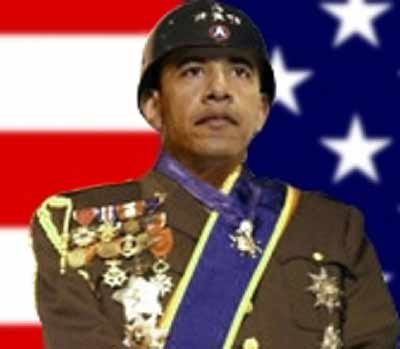
What does Barack Obama’s decision to dismiss General McChrystal, who was the chief commander of NATO forces in Afghanistan and who retires in the process, really mean?
When a war goes badly, the generals inevitably attack the civilian power. They show reluctance, criticize or malign, all of which most often ends at their expense. Afghanistan gives a new example of this.
In dismissing Gen. McChrystal –author of offensive remarks about the president of the United States and especially his entourage – Barack Obama made a necessary decision. He reminded us both that he is the only head of the armed forces and that he has no intention of tolerating insubordination — and all the more so since he, following McChrystal’s recommendations, ordered in 2009 that 30,000 additional men be sent to the Afghan theater.
Since the criticisms emanating from the general’s aides de camp were even more ferocious than those emitted by their superior, the error is twofold: either it is the chief commander whose behavior is disrespectful, or he is letting such behavior be exhibited freely. In both cases, McChrystal has shown that he was not controlling his post.
This dismissal obviously reveals much more than a discipline problem. Recently, McChrystal, who is decidedly verbose, made NATO aware that no notable progress should be expected in the next six months — thereby jeopardizing with his pessimism the American withdrawal, which the White House envisages beginning in July 2011. One should know better than to contradict the presidential will. A fatal misdemeanor that was more serious than any other chatter.
The replacement of McChrystal by the “extraordinary” General Petraeus, who knew how to limit the damage as head of American forces in Iraq, allows the president to respond to those who criticize him for losing control of the situation in Afghanistan.
True, but for all that has Obama really taken a new look at his strategy in Afghanistan? No. Petraeus is the third general in this post in a little more than a year. And equally serious malfunctions are affecting the civilian powers: the U.S. ambassador in Kabul displays his scorn for Afghan President Hamid Karzai while Richard Holbrooke, special representative for Afghanistan and Pakistan, is a persona non grata for the same Karzai since he lost his temper towards the latter. Nothing to strut about. Especially before a withdrawal.

Leave a Reply
You must be logged in to post a comment.